Solar Farms: What Are They & How Do They Work?
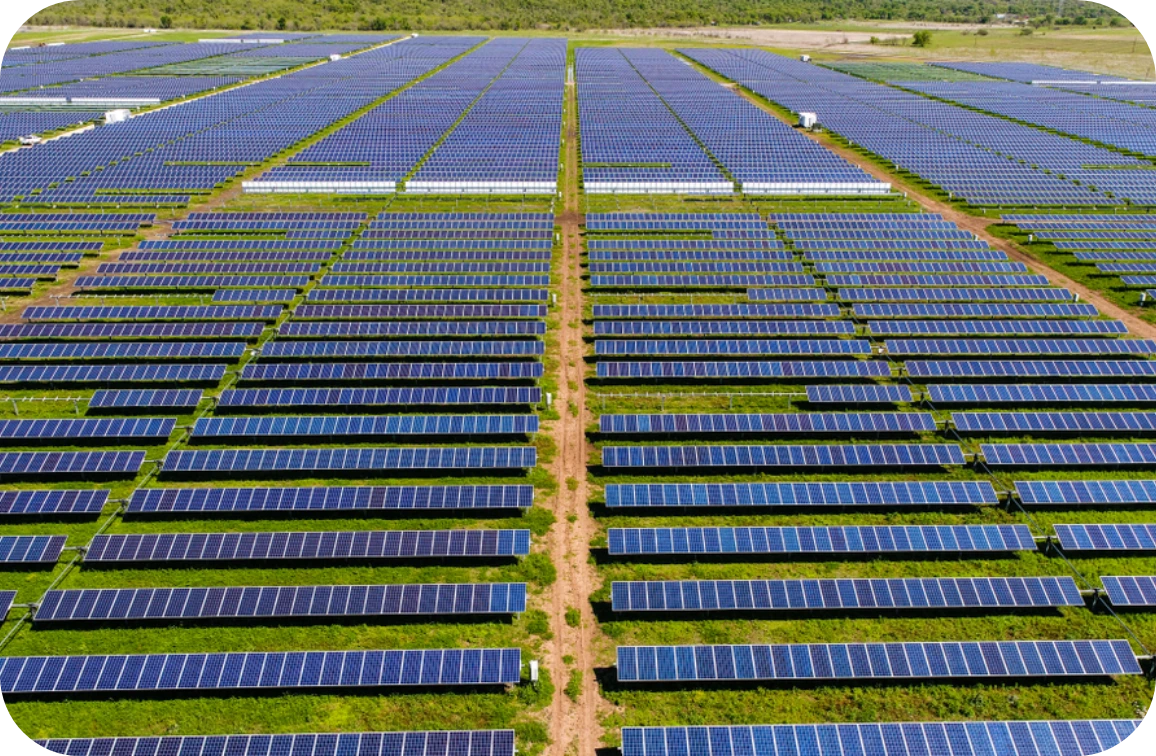
Year after year, solar energy shows increasing promise as a renewable energy source. Solar’s low carbon footprint and cost-effectiveness continue to be a major draw for home solar energy systems and solar farms.
Solar farms are one way that solar energy can be harnessed for large-scale operations. Below, let’s take a look at what solar farms are, how they work, and some other important info to give an idea of their utility as a renewable energy source, especially in comparison to residential solar panels.
What Is A Solar Farm
Solar farms or solar power plants are solar installations that use a large amount of photovoltaic (PV) panels working together to generate more solar energy than a residential installation could achieve alone. The solar panels in a solar farm can either be mounted in place on the ground or to a moving structure to optimize the amount of direct sunlight they absorb. Solar farms are connected to the grid, allowing them to provide electricity to the homes and businesses that they service.
The main difference between residential solar installations and solar farms is in location and scale. As the name implies, residential solar is installed on a home’s roof and generates electricity for that building alone. Solar farms, on the other hand, are located on public or private land and generate large quantities of electricity for multiple buildings, sometimes hundreds or even thousands of homes or businesses.
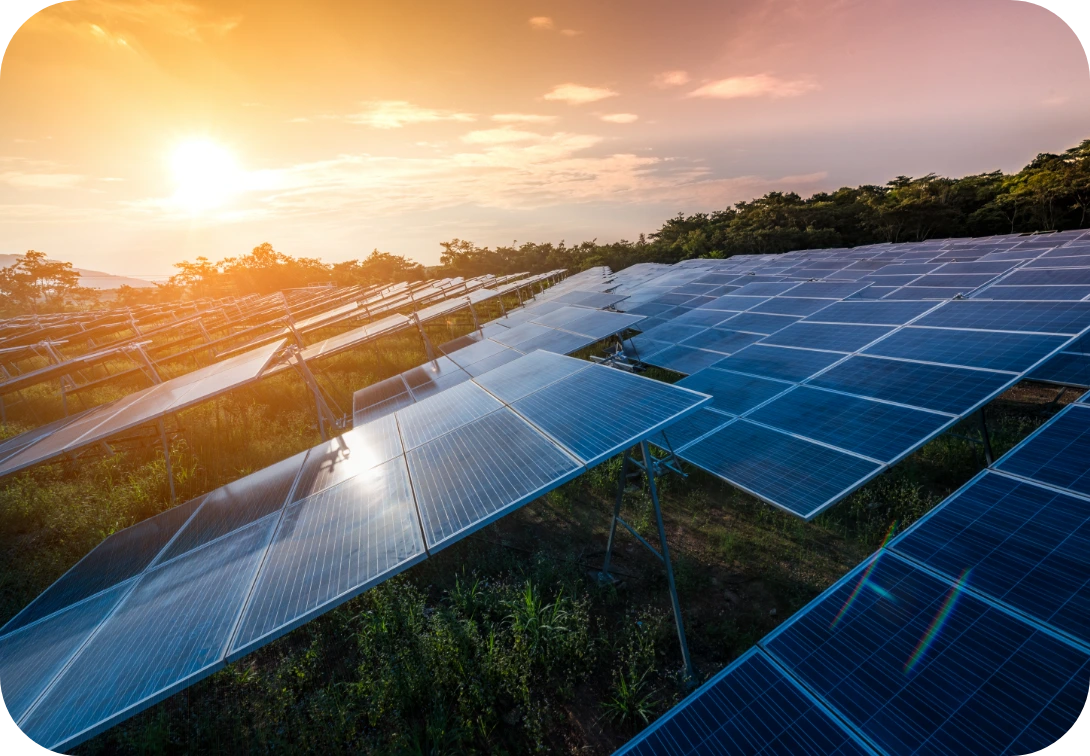
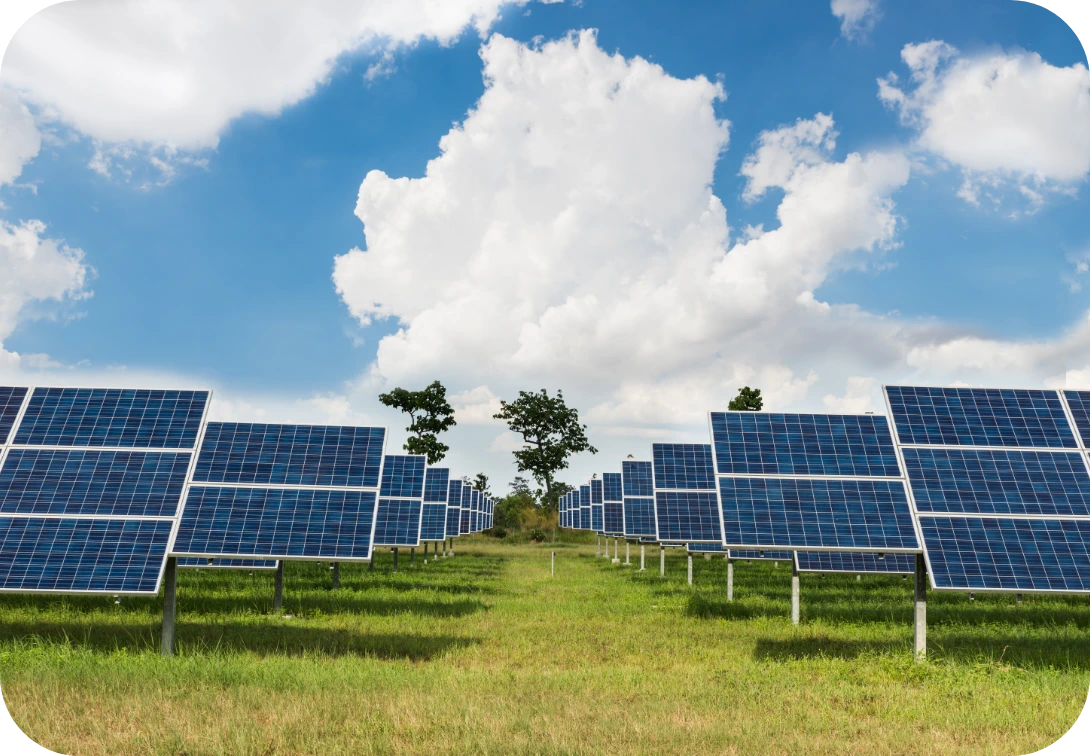
Residential Solar Vs. Solar Farms
The main difference between residential solar systems and solar farms is in location and scale. As the name implies, residential solar is installed on a home’s roof and generates electricity for that building alone. Solar farms, on the other hand, are located on public or private land and generate large quantities of electricity for multiple buildings, sometimes hundreds or even thousands of homes or businesses.
Types Of Solar Farms
The two most common types of solar farms are utility-scale solar power plants and community solar farms.
Utility-Scale Solar Power
A utility-scale solar power plant is a solar farm that is usually owned and managed by private companies, typically a utility provider. A utility-scale solar farm, depending on its size, can generate anywhere from 1 megawatt (MW) to several hundreds of MW. In most circumstances, they will be located in remote areas that get lots of sun.
Community Solar Farms
Community solar farms are owned by a small group of people or a community. They are usually smaller operations. A main benefit of community solar farms is that they provide solar energy to those who have less opportunity to take advantage of solar panels on their own property (like renters or those whose roofs are usually in the shade).
Advantages Of Solar Farms
Harnessing solar energy through solar farms has major benefits, both for the people they serve and for the environment.
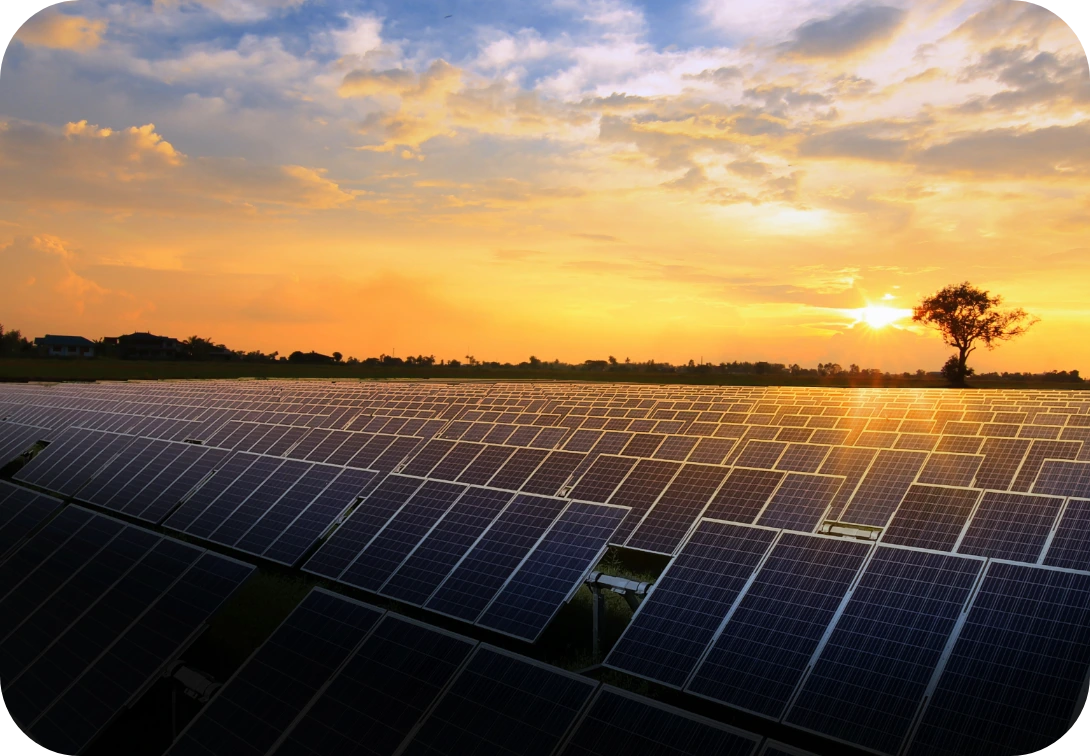
Environmentally Friendly
With no emissions and minimal water usage, solar farms are a very ecologically responsible way to produce energy. Most other energy sources either emit chemicals that are toxic or contribute to the greenhouse effect, use excessive amounts of water that could have been used for drinking or both.
Some have shown concern that solar modules have the potential to contaminate the soil underneath or around them. However, studies have shown this claim to be false. On the contrary, solar panels might even help reduce soil erosion as well as provide much-needed shade for plants and animals in their vicinity.
Require Little Maintenance
Once a solar farm has been installed, it will need very little maintenance to stay operational and efficient. Compared to other energy sources with many moving parts and complex components, operating solar farms require a very small amount of labor, making them a low-cost energy option for communities and cities that can take advantage of them.
No Upfront Cost for Community Solar Farm Subscribers
Since solar farms are usually owned and operated by external groups or individuals, community members who draw their energy from a solar farm don’t have to pay the same upfront costs that they would if they installed solar panels on their homes. This makes solar farms a much more accessible way for many to benefit from solar energy.
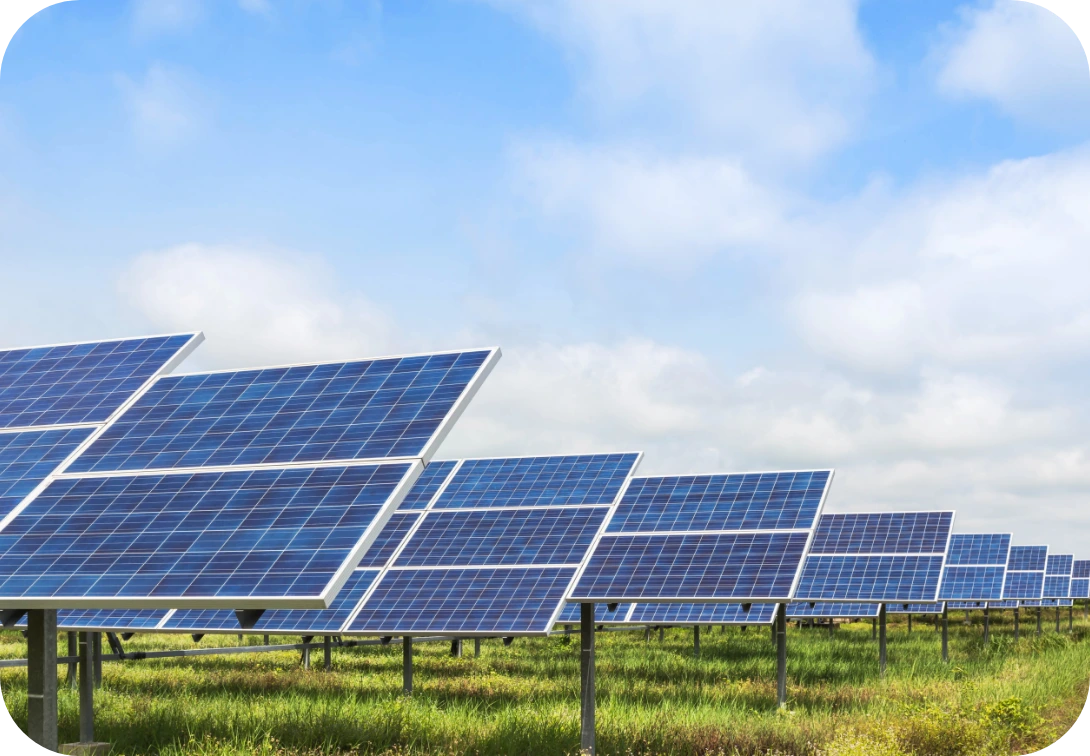
Disadvantages Of Solar Farms
While solar farms have a lot of advantages as a solar energy source, they also have some disadvantages.
Upfront Cost for Property Owners
Between land, materials, and installation, solar farms can be expensive for the property owners who fund and operate them. Individuals or groups who plan to build a solar farm should account for the upfront cost associated with the project to plan accurately.
Takes Up Space
Solar farms require a lot of space, usually several acres. To be a worthwhile installation for its scale, a typical solar farm will often have hundreds, sometimes even thousands of panels set up in an array, so the space can add up quickly. If an area doesn’t have available real estate, a solar farm might not be in the question. This often makes remote locations where land is plentiful more practical applications for solar farms.
Energy Storage Can Be Expensive
Just like residential solar installations, solar farms can only generate energy during daylight hours. To reliably provide any energy to users when the sun goes down, or the sky is overcast, solar farms will require energy storage solutions. As the years go on, energy storage technology is seeing significant advances that make it more efficient and cost-effective, but in the meantime, energy storage can contribute a lot to the cost of solar farm installations.
Building is a Complex Process
To install a solar farm, one needs to undergo a complex process. To start, a site large enough to accommodate the array you need will have to be selected. Then, you’ll need the right permits to build your solar farm before designing the optimal layout and finally paying for the installation. Installation can include the solar panels themselves, their mounts, wiring, energy storage, and the final task of connecting the solar farm to the grid that it will service.
Possible Impact on Birds and Other Wildlife
Some aquatic birds may see the shiny surface of solar panels from the air and mistake them for bodies of water, and attempt to dive, colliding with the panel. Though this is an occasional concern, it can be addressed by a conscientious solar farm owner by selecting a site with less bird activity to begin with and by visually marking the area to break up the appearance of the panels as a group.
When solar farms are not properly researched and installed, there can be some negative wildlife impact, mainly in areas with sensitive habitats. Best practices for solar farm installations dictate that the land used should be naturally bare. In cases where plant life and rich habitats need to be destroyed or disturbed to build a solar farm, a different site should be chosen.
How Does Weather Impact A Solar Farm’s Performance?
Temperature, humidity, and cloud cover can reduce the energy production of a solar farm, but they don’t drop it completely. Solar panels will still generate electricity when the weather gets cold and cloudy, but not at the same rate that they do when it’s clear and warm.
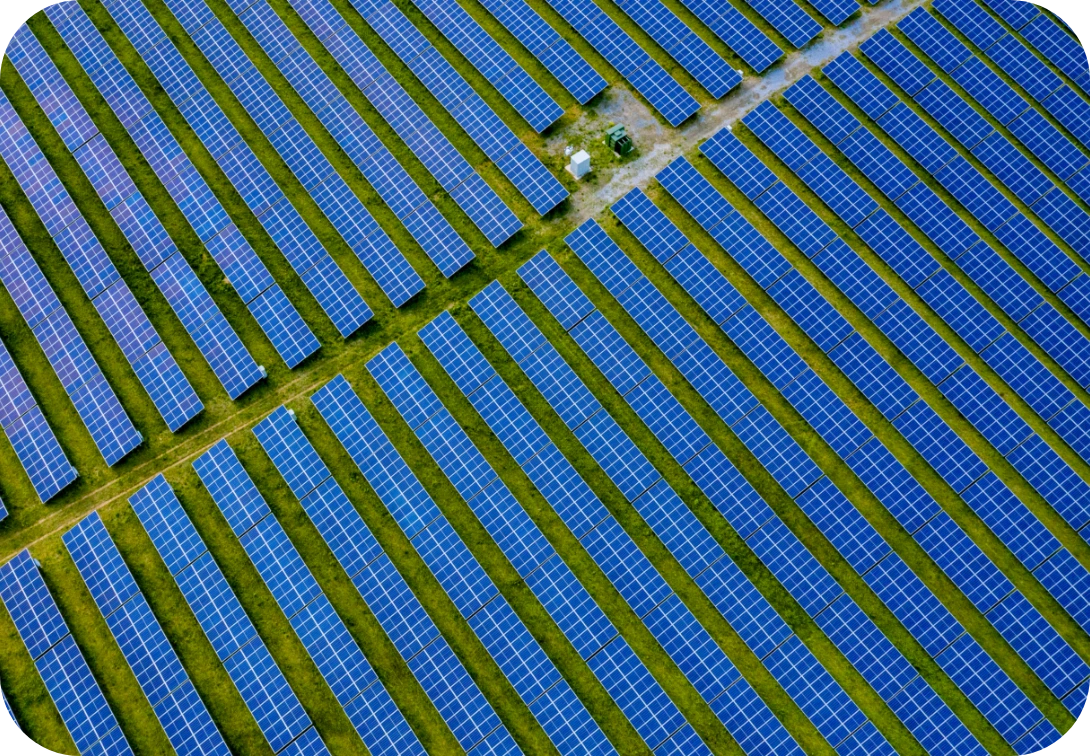
Why Residential Solar Panels Are A Better Bet Than Solar Farms
It’s true that solar farms can be a good energy source for some, but that being said, a residential solar panel setup will usually offer more benefits.
Energy Independence
Homeowners with residential solar panels inherently have more control over the energy they produce and use, which allows homeowners to save a considerable amount of money on their electric bills.
Net Metering
In many areas, homeowners with residential solar panels are also given the option to sell the excess electricity they generate back to the grid, which can further save them money with a credit on their electric bill.
Increased Property Value
Because solar installations are a desirable feature, homes with solar panels tend to sell faster and for more money than those without. An onsite solar installation can add considerable value to your property.
Go Solar with Axia
If you’re interested in installing solar panels on your home, Axia can help! We provide both residential and commercial solar panel installation that can help you manage and reduce your energy costs for your home or business. Talk to one of our experts today to learn more about how solar panels can help you live a cleaner, more sustainable, and less expensive life.